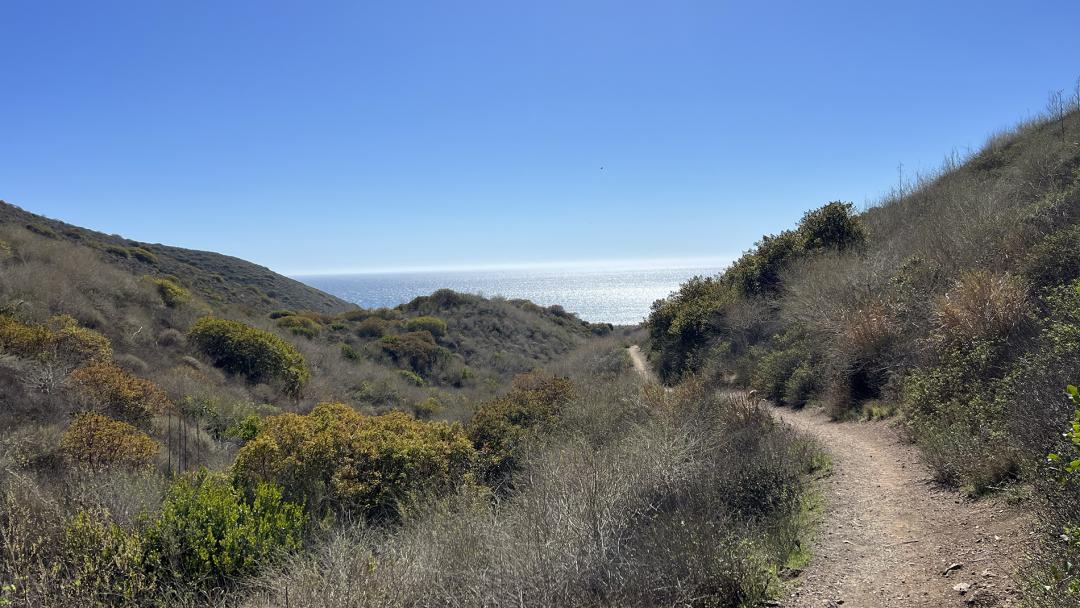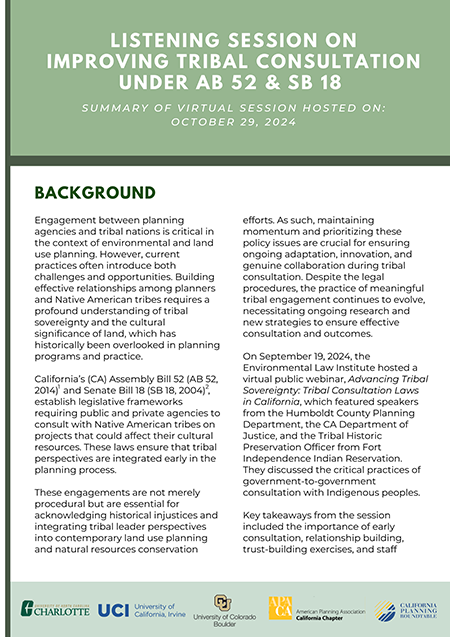
Researchers report on planners’ experiences with tribal consultation
By Karla Monroy, Clint Carroll, Michael Méndez and Michelle Zuñiga
California’s SB 18 (2004) and AB 52 (2014) were enacted to strengthen tribal consultation in land use and environmental planning, recognizing Native Nations’ sovereignty and deep ties to ancestral lands. As climate adaptation policies increasingly emphasize equity and resilience, meaningful tribal engagement is essential to ensuring Indigenous knowledge informs land-use decisions, particularly those affecting cultural resources and ecological sustainability. However, challenges persist in translating these legal mandates into effective and respectful planning practices.
 Overview of Listening Session with Planners
Overview of Listening Session with Planners
In October 2024, a collaborative effort between the American Planning Association California, the California Planning Roundtable, and researchers from the University of California, Irvine, the University of North Carolina at Charlotte, and the University of Colorado, Boulder, convened a virtual listening session for California planners to discuss their experiences with tribal consultation under AB 52 and SB 18. Over 70 planners from varying parts of California participated, sharing insights on successes, challenges, and areas for improvement.
This memo summarizes key themes that emerged, including:
- planners’ perspectives on meaningful consultation,
- success stories and relationship-building,
- common challenges and;
- resources needed to enhance tribal consultation.
Findings from this session aim to support planners, policymakers, and tribal leaders in understanding the current state of tribal consultation and identifying pathways for improvement.
Preliminary results
Our findings indicate that while these laws provide a legal framework, their implementation is often hindered by misaligned objectives, rigid timelines, limited tribal capacity, and a lack of planner awareness regarding government-to-government consultation and the cultural significance of ancestral lands.
Next Steps
As part of our ongoing research, we are now engaging with tribal leaders to gain a more comprehensive perspective on these challenges. Final findings will be presented at the American Planning Association California’s 2025 Conference in Monterey, California.